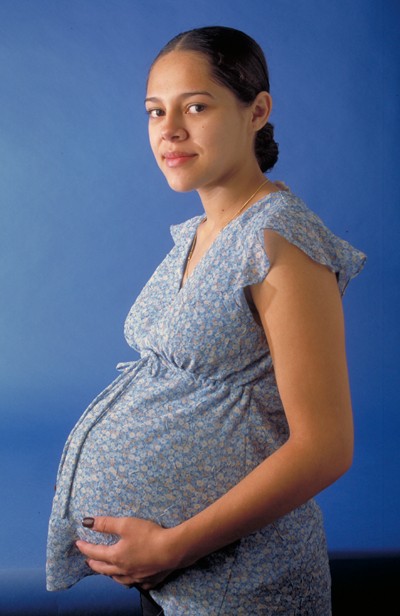
The latest statistics from the Centers for Disease Control and Prevention (CDC) estimate 1 in 68 children are diagnosed with autism spectrum disorder. Now a new study from the Harvard School of Public Health finds women exposed to high levels of fine particulate air pollution during pregnancy face up to twice the risk of having a child with autism.
The study focused specifically on fine particulate air pollution, made of components like acids, chemicals, metals, and soil or dust particles smaller than 2.5 microns (PM2.5).
According to the Environmental Protection Agency (EPA), the size of particles is directly linked to their potential for causing health problems because of the ability to pass through the throat and nose and enter the lungs.
Experts said the findings, reported in the Dec. 18 online edition of Environmental Health Perspectives, add to evidence that air pollution may contribute to autism.
"This reinforces our confidence that air pollution is a risk factor," said Michael Rosanoff, director of public health research for the advocacy group Autism Speaks.
Rosanoff, who was not involved in the study, stressed that people should keep the odds in perspective: A twofold increase in a small risk is still a small risk.
In addition, it's important to note that while this study found an association between air pollution exposure in pregnancy and the risk of autism, the study doesn't prove that smog exposure caused autism.
Still, the findings are important because they point to an autism risk factor that can be changed, Rosanoff said.
The study population was composed of children of participants in the Nurses' Health Study II, a group of more than 116,000 female U.S. nurses in all 50 states who have been the platform for various forms of women's health research since 1989. The researchers collected data on where participants lived during their pregnancies as well as information from the EPA on levels of fine particulate matter air pollution in locations across the U.S.
"Particulate matter air pollution does vary across the country both in time and space. More urbanized areas tend to have higher levels because of traffic, but rural areas can have higher levels than one might think because regionally transported components can come from far away," senior study author Marc Weisskopf, an associate professor of environmental and occupational epidemiology at Harvard, told FoxNews.com
His team found no statistical link between autism risk and moms' air pollution exposure before or after pregnancy.
"That helps rule out a lot of other factors that could explain the association," Weisskopf said.
For example, he noted, it could be argued that exposure to air pollution is just a marker of lower income and less prenatal care, which could be the "real" risk factor. But if that were the case, Weisskopf said, pollution exposure before and after pregnancy should be tied to autism risk, too.
Rosanoff agreed that pinpointing the third trimester as a "critical window" helps strengthen the case that air pollution, itself, is contributing to autism in some cases.
Weisskopf said he hopes further research will discover not only what particular components of PM2.5 are responsible for the increased autism risk, but also the biological mechanisms the particles are triggering that lead to autism.
Pregnant women can't avoid at least some level of exposure to PM2.5, according to Weisskopf, but he suggests keeping away from cities and roadways that have consistently high levels of pollution.
The study was published in Environmental Health Perspectives.

